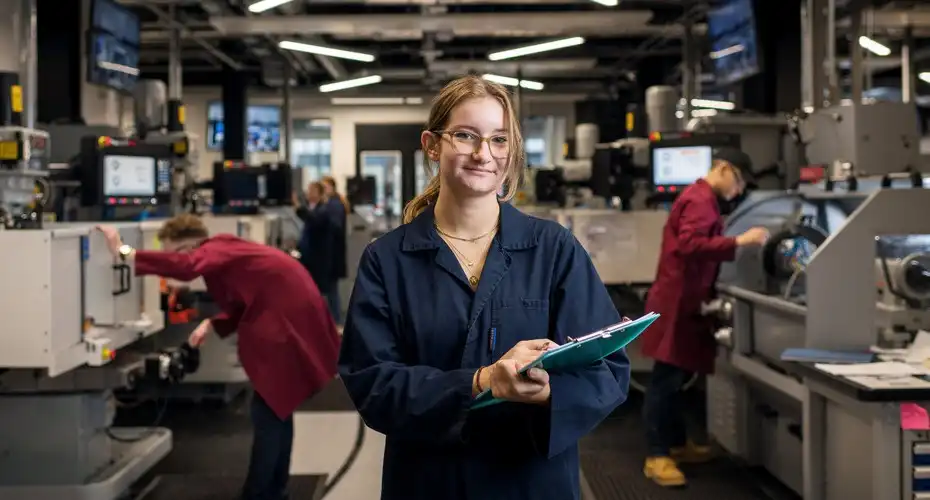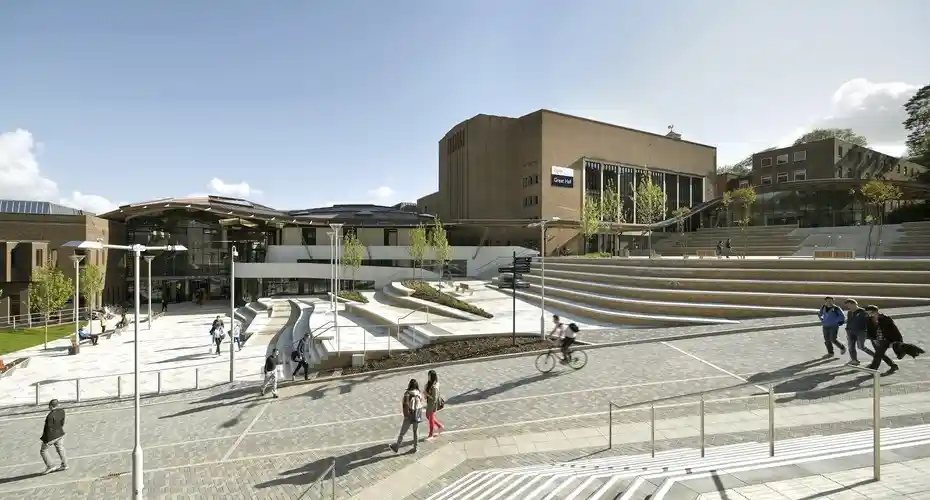| Degrees |
MPhil/PhD Complex Living Systems |
|---|---|
| Duration |
| Start date | September, January or April |
|---|---|
| Location | Streatham Campus |
| Study modes | Full time and part time |
Overview
- Leading edge approaches including genome editing, advanced imaging, stem cell biology, mathematical modelling, neuroscience, single cell/molecule technologies
- An interdisciplinary training programme tailored to the individual student
- A supervisory team from different disciplines
- The opportunity to formulate your own project
- A modern, inclusive environment that is passionately committed to your development.
- Fully funded places including personal stipend and training budget
8th in the UK for Biological Sciences
The Guardian University Guide 2021
Advanced laboratory skills with specialist techniques training
World-leading research groups
Accredited by AMBA, EQUIS and AACSB
8th in the UK for Biological Sciences
The Guardian University Guide 2021
Advanced laboratory skills with specialist techniques training
World-leading research groups
Accredited by AMBA, EQUIS and AACSB
Research overview
Modern scientific innovation involves the integration of diverse disciplines and the bridging of pure and application-oriented research. This requires a new generation of scientists who are trained to think and experiment beyond traditional boundaries. The recently established Living Systems Institute (LSI), University of Exeter, provides this opportunity by housing world leading Biologists, Physicists, Mathematicians, Computational Scientists and Engineers using cutting-edge technologies.
Our mission is to understand life across all scales - from individual atoms to whole organisms - and to discover approaches for improving health and treating disease. We are pleased to announce the first call for our interdisciplinary PhD programme for the autumn 2020 intake. We wish to recruit the best and most imaginative students from across the full range of disciplines to join our thriving community of over 60 PhD students.
How to apply
Applicants must hold a university degree that is accepted by the University of Exeter for registration as a graduate student such as a BSc, MSc or equivalent with first or upper second class honours. We want to support diverse and inclusive work environments. We therefore welcome applications from individuals regardless of their race, ethnicity, sexual orientation, religion, age, gender, or disability status.
English language requirements
International students need to show they have the required level of English language to study this course. The required test scores for this course fall under Profile B2: view the required test scores and equivalencies from your country.
Fees and funding
Tuition fees per year 2025/26
- Home: £5,006 full-time; £pro-rata part-time
- International: £28,600 full-time
For those studying for more than one year, our fees are expected to increase modestly in line with Consumer Price Inflation measured in December each year. More information can be found on our Student Finance webpages.
Tuition fees per year 2024/25
- Home: £4,786 full-time; £pro-rata part-time
- International: £27,500 full-time
For those studying for more than one year, our fees are expected to increase modestly in line with Consumer Price Inflation measured in December each year. More information can be found on our Student Finance webpages.
Supervision
- All LSI PhD students will have a primary and a secondary supervisor from LSI who will provide regular, high quality advice, support and direction for their research.
- You will work closely with your supervisors to develop, investigate and write-up a project at the cutting edge of your living systems research.
- Visit our staff profiles for more information about individual research interests.
- Each student will also be assigned a tutor who will take on a pastoral role and mediate on any problems that arise during the period of study. Your tutor will keep in regular contact and will provide background stability and support.
- The Living Systems Institute has a dedicated Director of Post Graduate Research Professor Steve West who together with the PGR Support Teams and the LSI Administrative office support our postgraduate research students during their study with us. They promote intellectual and social contact between research students across the Institute to foster a vibrant research community.
- You will join a friendly and diverse community of over 60 PhD students within the LSI. We provide a vibrant research culture among our staff and students and within the programme. You will have the opportunity to undertake a short group project and undertake rotation projects within the first year. Subsequently, there will be PhD student lead seminar series’, journal clubs and discussion groups aimed at developing scientific networking and discourse.
Learning and Facilities

Students on this programme will be based in the Living Systems Institute with their supervisors, they will have access to the lab facilities to support their research and will also have a desk in the research write up offices.
LSI PIs and their research groups have access to all the state of the art facilities within the Living Systems Institute, the LSI PhD students will be able to use these if required for their research project including the Aquatic Resources Centre and the BioImaging Centre if appropriate.
The University of Exeter and the Living Systems Institute is extremely well provisioned with novel technologies to undertake research into living systems while similar facilities exist elsewhere the juxtaposition of Exeter’s facilities with its state of the art Living Systems Institute is unique.
Learning
LSI PhD students may access all courses offered through the University’s Doctoral College. In addition following an initial training needs analysis students may be able to access postgraduate taught modules to support their understanding in particular areas.
Induction projects
The first year will begin with an opportunity to undertake a group project to provide an introduction to interdisciplinary research. The following 3-4 months will comprise of rotations within different labs, designed on an individual basis, which will allow students to experience the research environment in different laboratories. Its purpose is to familiarise you with the different approaches to research such that at the end of this rotation period, you will be able to refine your PhD project with help from faculty members.
Assessment
You will be assessed through the submission of a thesis and viva.
Teaching opportunities
There may be teaching opportunities in the STEMM courses and potentially within LSI.
Research training
The variety of research systems, fields and approaches in the Living Systems Institute provide a multitude of training opportunities for our PhD students. We aim to develop your skills in advance of when they will be required, and so many of our core training modules take place in the first year prior to the start of the main PhD project. We offer a core general interdisciplinary training programme for all of our students that will include: physical, mathematical and computational analyses of living systems (imaging, modelling and bioinformatics) as well as workshops on the latest methods in Biological sciences. Further individual training needs will be provided as the PhD progresses.
Find out more about Researcher Development.
Careers

University of Exeter and LSI has strong links with the pharmaceutical industry and is currently working with a number of partner institutions. Several of our LSI PIs have direct industry experience and are able to give advice about how to work in this sector and the difference between industry and research led activity. Overall, the programme will allow you to develop skills highly sought after by employers, while also giving you the opportunity to create a professional network with employers.
More information
- Example projects to give you a flavour of the scope within LSI to pursue truly interdisciplinary science.
- Read more about LSI's Principal Investigators and potential supervisors.











